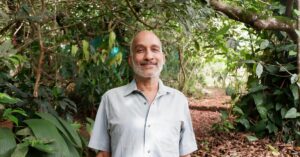We Planted 1000 Trees to Transform Our Locality in Kolkata; 5 Ways You Can Start Now Too
Led by engineer Biswajit Majumdar, citizens in Newtown Kolkata have planted 1,000 trees to mitigate rising air pollution in the city. Biswajit shares tips for citizens on how can they replicate the plantation drive in their cities.
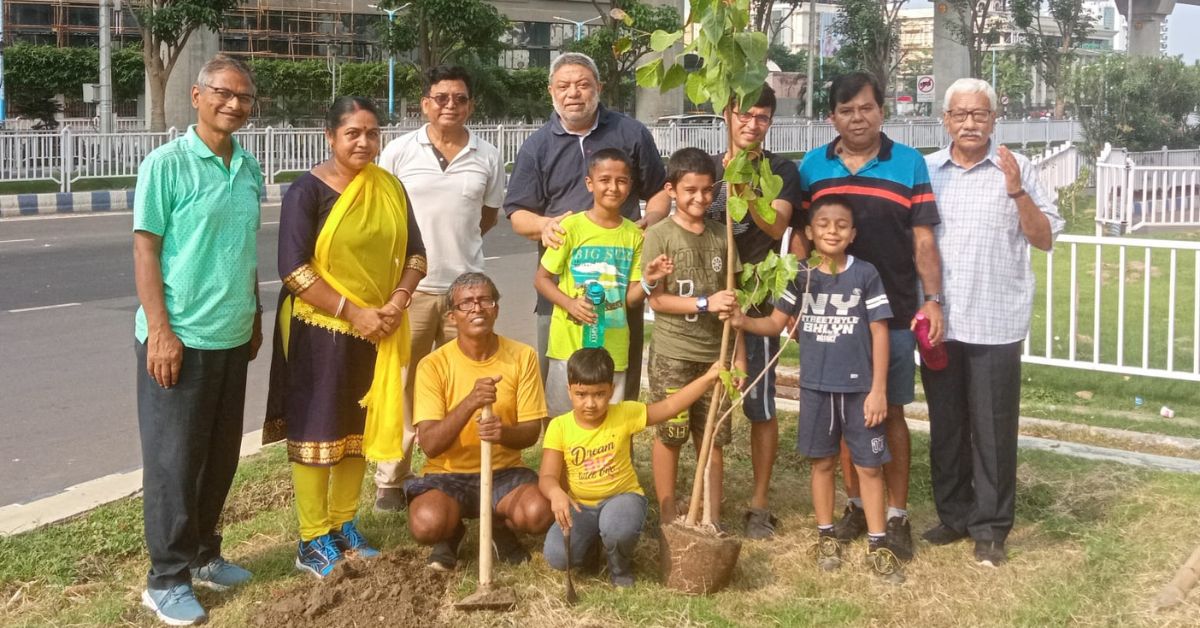
In India, 16.7 lakh people lost their lives in 2019 due to air pollution. This was 17.8 percent of all deaths in the country that year, and the largest number of air-pollution-related deaths of any country.
This indicates that air pollution is the largest existential threat to human and planetary health. Realising this, Kolkata’s Biswajit Majumder started exploring ways a common man can contribute to mitigating pollution.
“Air pollution is a big problem in India. The cities are densely populated and have left little space for nature and biodiversity to thrive. Many residents keep criticising the government policies, and we as responsible citizens want to focus on what we can do at our end,” the 47-year-old, who hails from West Bengal’s Newtown city, tells The Better India.
“In Newtown, there are many open spaces. To avoid labour costs, people clean these spaces by burning waste. There’s a lot of stubble burning in the middle of residential areas. We breathe toxins,” he adds.
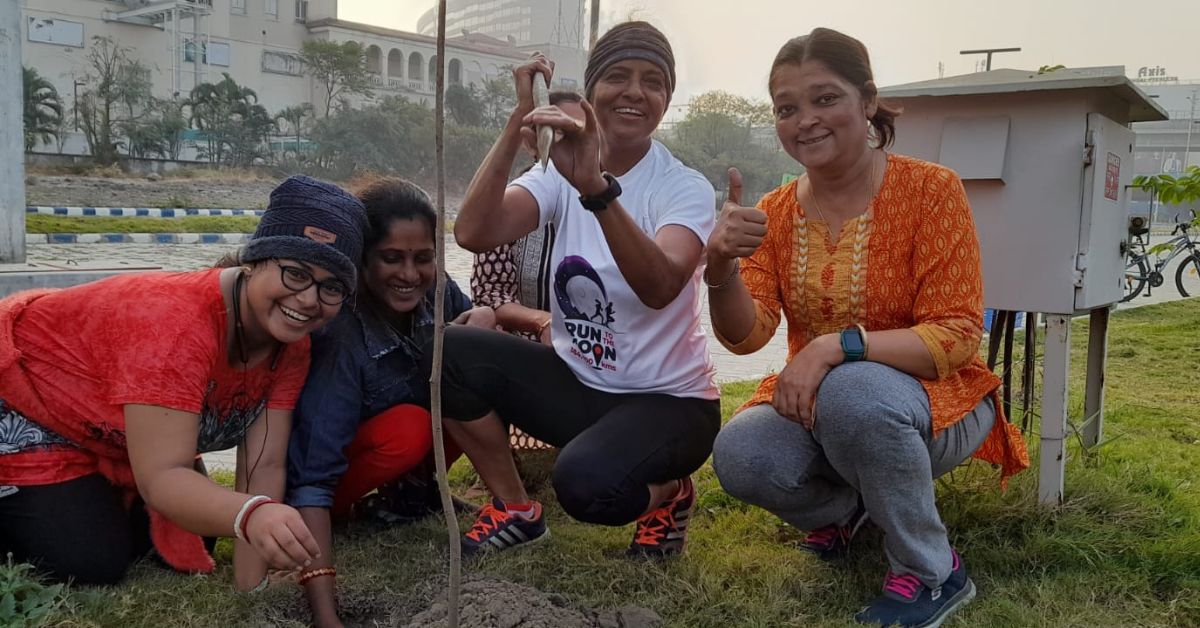
In order to mitigate air pollution, Biswajit started a movement to plant 1,000 trees in the area by engaging citizens.
Morning walk to morning work
Biswajit is a chemical engineer by profession, and alongside his job, leads the plantation drive. He began his endeavour in May 2022 with his son.
It was at this time that he met another local resident Subhankar Majumder, who has been separately planting trees in various places around the township. The duo then started working together.
They approached local morning walkers and received an encouraging promise of participation. The group started to identify places such as roadside dividers and parks. They went on to talk to various local people, including auto drivers, roadside hawkers, local gardeners, and morning walkers.
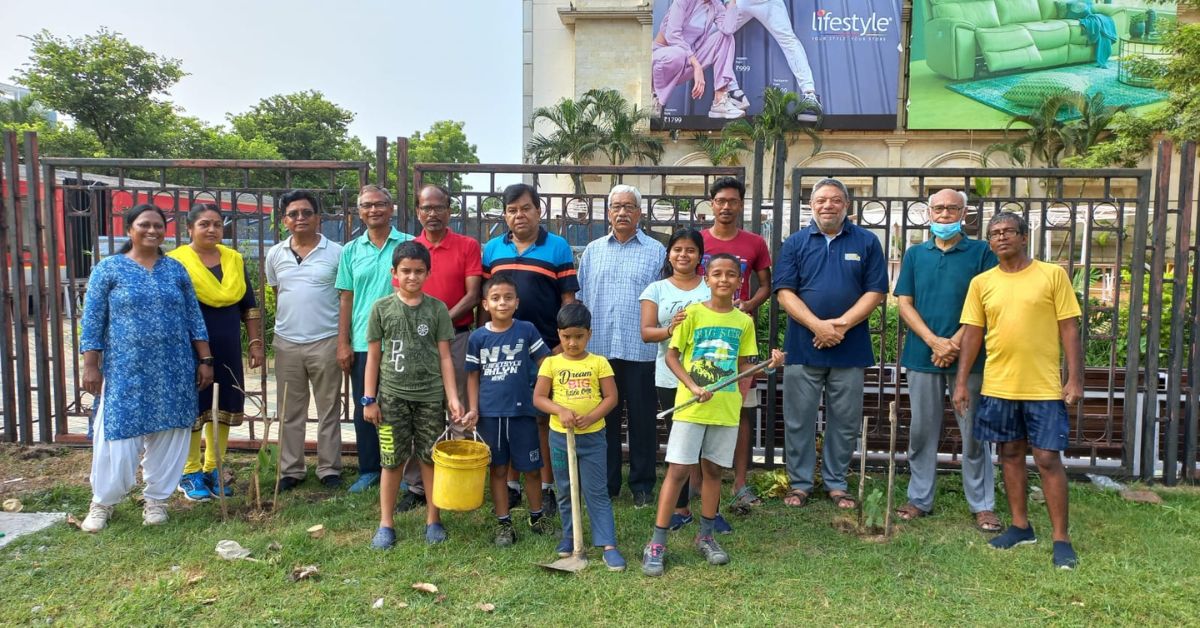
“People started gathering spontaneously, and soon we built a network of 140 people in the city. They started planting in various places almost on a daily basis, as a spontaneous expression of love for greenery and love for the city. We are propagating what we can do at our end by practising and not just preaching. We are not doing this just for photos,” says Biswajit, who himself has planted up to 100 trees in the city.
“We created a WhatsApp group where we mutually decide a location, then nearby members meet and plant saplings. We conduct these drives in the mornings. These people have converted their morning walks into morning ‘works’,” he adds.
Since its launch in May, the citizens were able to plant 1,000 saplings by November 2022. Of these saplings planted, 850 have survived.
“This could have been possible because we plant saplings only where we have citizen support. Only when they agree to take care of the saplings do we request them to plant them in their locality and maintain them by watering them regularly. One needs to take care of the saplings for at least a year,” he says.
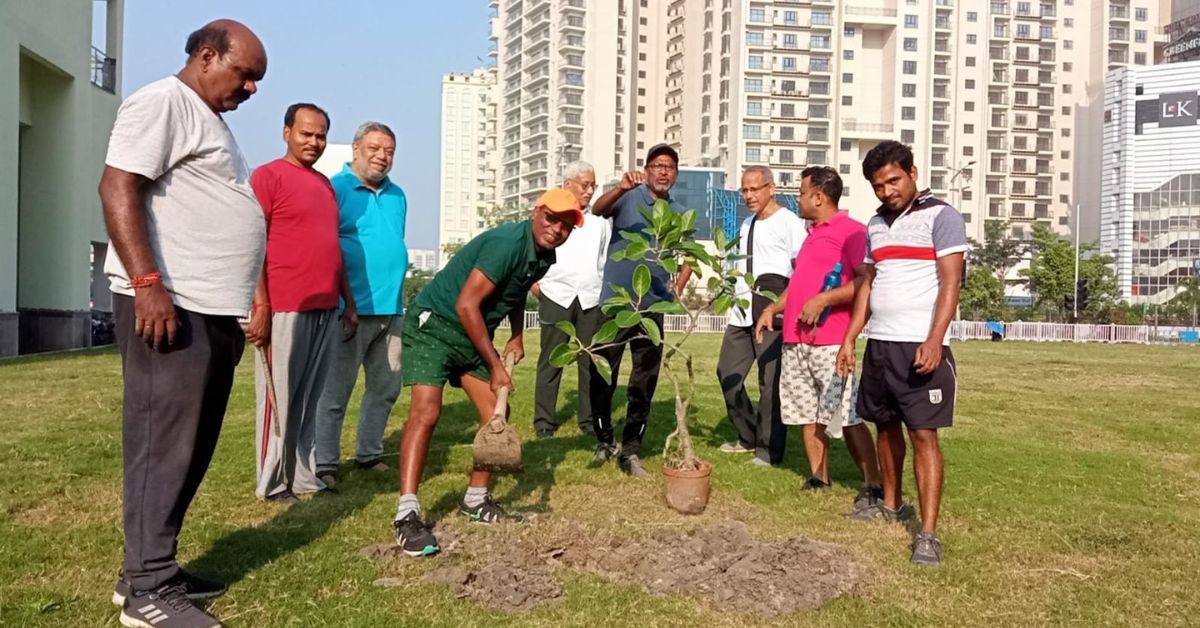
These citizens have planted more than 30 varieties of native trees including mango, peepul, jackfruit, neem, bakul (Spanish cherry), and amla (Indian gooseberry). Today, the plantation continues in areas like local parks, community zones, road medians, and protected green verges. People spontaneously contribute trees and money for saplings, says Biswajit.
This year, the Newtown Kolkata citizens have planted 133 saplings within three months. Biswajit says that the most active age group in the network is senior citizens above 60 years of age. “They find the work more fulfilling as they meet new people and engage in activities instead of sitting at home in their apartments. The city has become a big playground for them and the activity is like a picnic for them,” he adds.
For instance, 62-year-old Sukanta Pal, who is a key member of the initiative, made many new friends in the plantation drive and regularly looks after the saplings during his morning walks. “I used to work in the Railways. I retired in 2021 and had nothing interesting to do. I have been having a good time since I joined the plantation drive. Every morning, we water the saplings and protect them from animals. It feels good to be involved in such activities,” he tells The Better India.
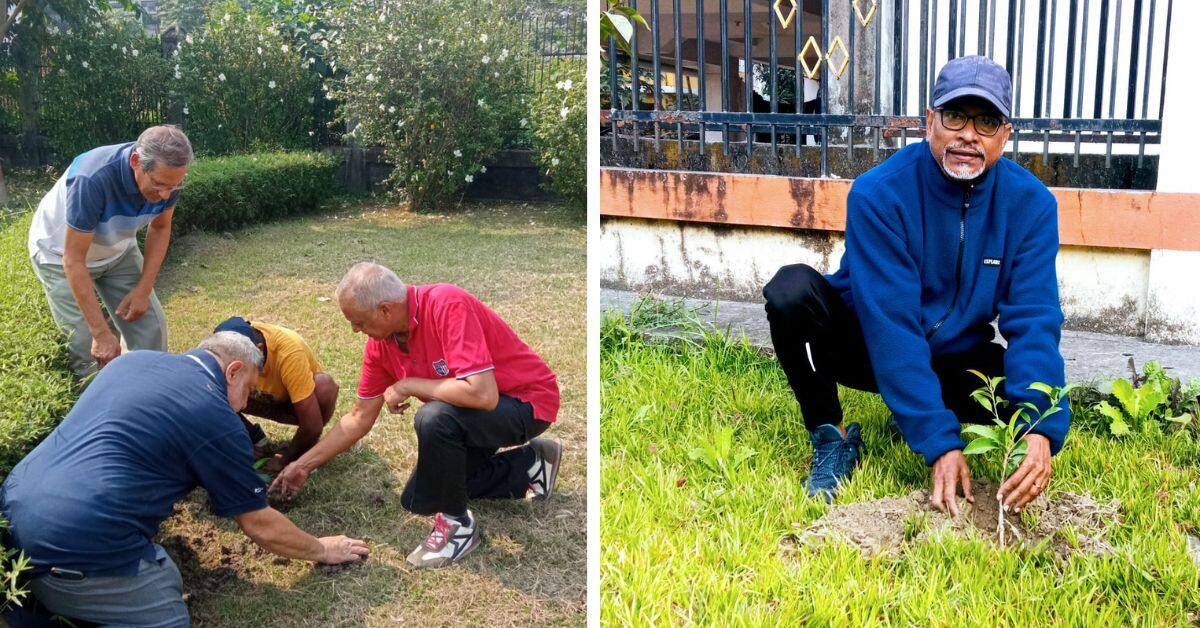
Meanwhile, Biswajit believes that citizen engagement is extremely crucial for such initiatives to be sustainable. “I want to see a positive change in my city. And when citizens engage, the local authorities work in a more sustainable way otherwise it is difficult to reflect changes,” he adds.
Tips to replicate the movement
Biswajit shares a few tips for citizens to replicate this movement in their cities.
- Instead of planning a massive plantation drive on one particular day, Biswajit says to include it in the daily exercise regime. “Convert a part of your exercise regime into this physical activity. It is a fun activity where you do a lot of digging, fetching water, etc. Dedicate two out of five days of physical activity for the plantation,” he says.
- Break the barrier of shyness. “First day will be odd, but the second day will be a pleasure,” he says. Engage a close friend in the activity.
- Identify public places such as dividers and parks that are not well-maintained.
- Plant native trees. Ensure its survival by watering it regularly during the morning exercise regime. Look after it for at least a year.
- Plan another plantation drive at another location. Engage local people like auto drivers, who will remain at that place to water the saplings. “Engage them in plantation activities and make them feel as if this is their plant.”
Edited by Divya Sethu
Source
‘Health and economic impact of air pollution in the states of India: the Global Burden of Disease Study 2019’: Published by The Lancet Planetary Health on 21 December 2020.
If you found our stories insightful, informative, or even just enjoyable, we invite you to consider making a voluntary payment to support the work we do at The Better India. Your contribution helps us continue producing quality content that educates, inspires, and drives positive change.
Choose one of the payment options below for your contribution-
By paying for the stories you value, you directly contribute to sustaining our efforts focused on making a difference in the world. Together, let's ensure that impactful stories continue to be told and shared, enriching lives and communities alike.
Thank you for your support. Here are some frequently asked questions you might find helpful to know why you are contributing?






